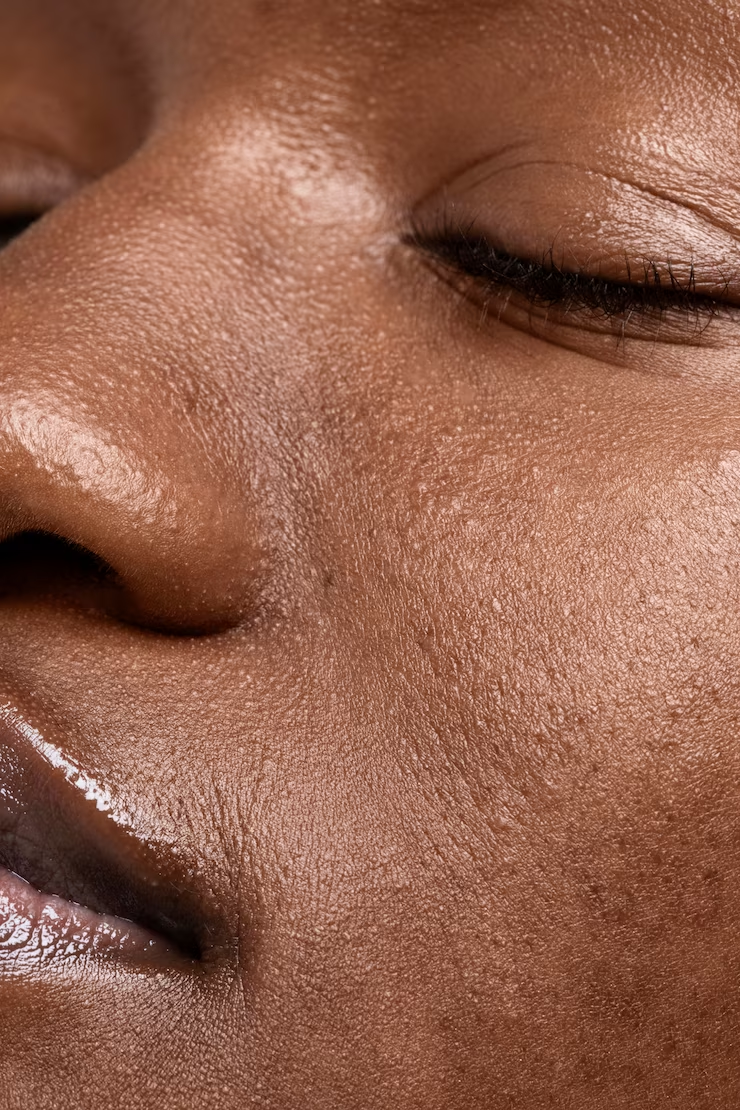Oily skin can be a common concern for many individuals, and South Africans are no exception. Factors such as the hot and humid climate, pollution, and genetic predisposition can contribute to excessive oil production, leading to a shiny complexion, enlarged pores, and an increased likelihood of breakouts. However, with the right skincare routine and lifestyle habits, it’s possible to manage and address oily skin effectively. Let’s explore some tips specifically tailored to the South African context to help you achieve a balanced and shine-free complexion.
- Cleanse Regularly: Regular cleansing is essential for controlling excess oil and keeping your skin clean. Opt for a gentle, water-based cleanser specifically formulated for oily skin. Look for ingredients like salicylic acid or tea tree oil, known for their oil-controlling and antibacterial properties. Cleanse your face twice a day, morning and evening, to remove impurities, excess sebum, and accumulated dirt. Avoid harsh cleansers or over-washing, as these can strip your skin of its natural oils and trigger an overproduction of sebum.
- Exfoliate Weekly: Exfoliation plays a crucial role in managing oily skin by removing dead skin cells, unclogging pores, and preventing the buildup of excess oil. Choose a gentle exfoliator with ingredients like alpha hydroxy acids (AHAs) or beta hydroxy acids (BHAs) to help regulate oil production and promote cell turnover. Exfoliate your skin once or twice a week to maintain a clear and smooth complexion. Be careful not to over-exfoliate, as this can cause irritation and stimulate more oil production.
- Hydrate Properly: While it may seem counterintuitive, moisturizing is still necessary, even for oily skin. Skipping moisturizer can lead to dehydration, causing your skin to produce more oil to compensate. Opt for lightweight, oil-free, or gel-based moisturizers that provide hydration without clogging the pores. Look for ingredients like hyaluronic acid, which can hydrate the skin without adding heaviness or greasiness. Proper hydration helps maintain the skin’s natural balance and reduces the likelihood of excessive oil production.
- Use Oil-Free and Non-Comedogenic Products: When selecting skincare and cosmetic products, opt for oil-free, non-comedogenic (non-pore-clogging), and water-based formulas. These products are specifically designed to minimize the risk of exacerbating oily skin concerns. Avoid heavy, greasy creams or products containing mineral oil, lanolin, or petrolatum, as they can potentially clog pores and contribute to increased oiliness.
- Embrace Clay Masks: Clay masks are excellent for oily skin as they help absorb excess oil, minimize the appearance of pores, and draw out impurities. Look for masks containing ingredients like kaolin clay or bentonite clay. Apply a clay mask once or twice a week to help control oiliness and achieve a matte finish. Be mindful not to leave the mask on for too long, as it can lead to excessive drying or irritation.
- Protect Your Skin from the Sun: Sun protection is vital for all skin types, including oily skin. Excessive sun exposure can lead to increased oil production, inflammation, and even skin discoloration. Apply a broad-spectrum sunscreen with an SPF of 30 or higher, specifically designed for oily skin. Look for lightweight, oil-free, and non-comedogenic formulas that won’t clog your pores. Reapply sunscreen every two hours, especially when spending time outdoors or in direct sunlight.
- Maintain a Healthy Lifestyle: A healthy lifestyle can contribute to the overall balance of your skin, including managing oiliness. Ensure you have a balanced diet rich in fruits, vegetables, whole grains, and lean proteins. Avoid excessive consumption of greasy and fried foods, as they can potentially trigger more oil production. Regular exercise, stress management, and adequate sleep also play a crucial role in maintaining healthy skin.
- Seek Professional Advice: If you’re struggling with persistent oily skin concerns, it’s advisable to consult a dermatologist or skincare professional. They can assess your skin condition, provide personalized recommendations, and prescribe suitable treatments or medications if necessary.
Managing oily skin in South Africa requires a combination of proper skincare practices, lifestyle adjustments, and regular maintenance. By adopting a tailored approach to your skincare routine and incorporating these tips into your daily life, you can achieve a balanced and shine-free complexion that allows your natural beauty to shine through. Remember, each person’s skin is unique, so it may take some trial and error to find the routine that works best for you.










